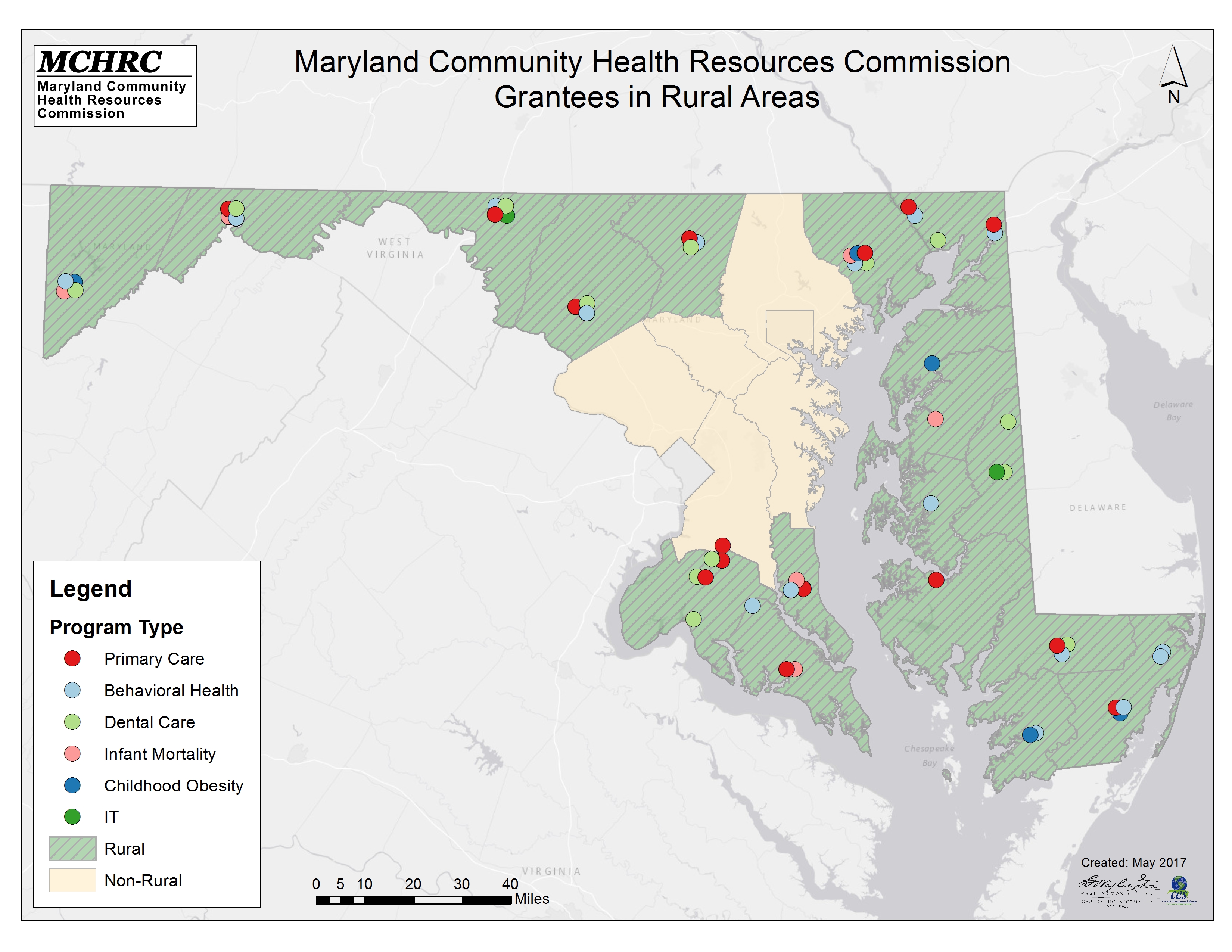Promoting rural health and expanding access to care in underserved communities are priorities of the Commission. Since its inception, the CHRC has awarded 866 grants, totaling $291.7 million. The CHRC has awarded 268 grants, totaling $110 million supporting programs in rural areas. These programs have served more than 218,289 individuals and provided access to over 717,095 visits. CHRC rural health grants allows individuals access to primary care, behavioral health care, dental, women’s health, and childhood obesity prevention services in 18 rural jurisdictions of the state. CHRC grants have provided the start-up funding to enable safety net providers to increase their capacity and have supported innovative and replicable projects to address social determinants of health and serve vulnerable populations.
ABOUT THE CHRC, RURAL HEALTH, AND THE MARYLAND RURAL HEALTH STORIES PROJECT
The Maryland Community Health Resources Commission (CHRC) has released three videos that highlight the human impact of CHRC grants in rural communities. The first video highlights programs in Garrett, Wicomico, and Calvert Counties. The second video highlights programs in Carroll, Cecil, and Wicomico Counties. A third video recounts the story of Calvert County resident Rachel who is overcoming addiction and changing her life's path.
The rural health stories project is a special collaboration with the Maryland Rural Health Association (MRHA). Under the project, six programs in rural communities are highlighted and residents who received services under these six programs went on camera to tell their story about how their lives were impacted by these programs.
To view the other videos
click here.
To read Jessica's story
click here.
To read Juan's story
click here.
To read Rachel's story
click here.


